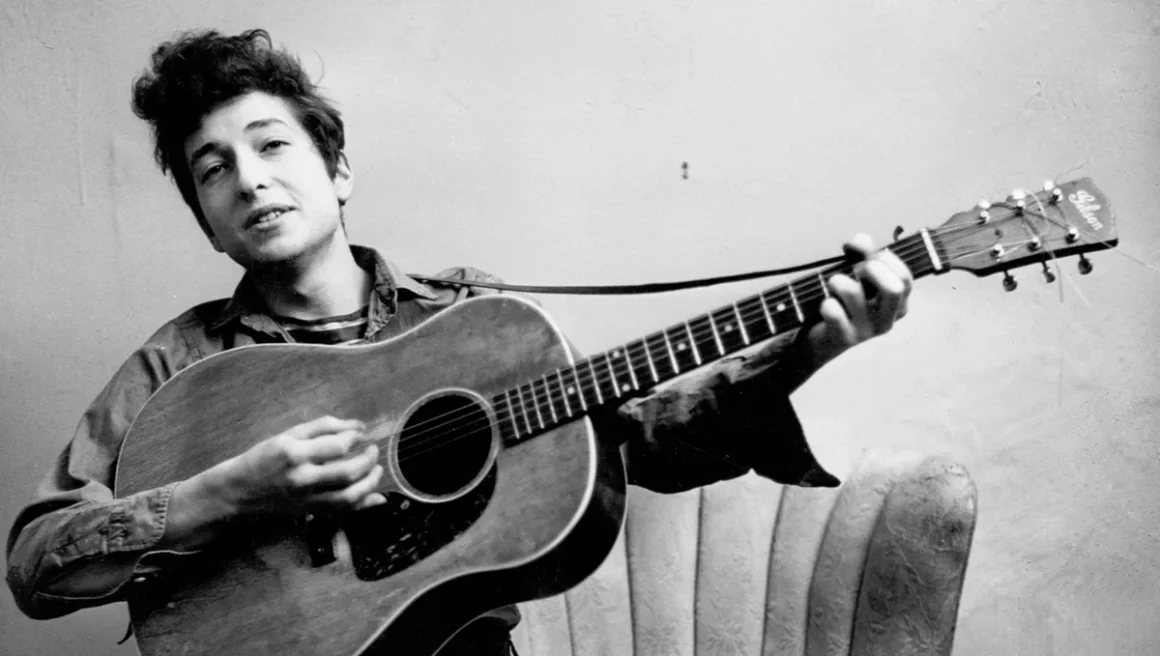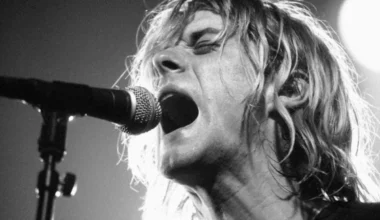Across a career spanning over six decades and 40 studio albums, Bob Dylan has established himself as one of the most influential songwriters of all time. Whether through his own distinctive voice, through covers by other artists, or via songs written for others, Dylan’s lyrics consistently tap into deep emotions and provoke thought. Often employing strophic forms and driven by poetic elements, his body of work spans themes of politics, love, and the mystical.
Dylan’s evolution as a songwriter is clear when contrasting two tracks: “Farewell Angelina” and “Angelina.” Both appeared on The Bootleg Series Volumes 1–3: Rare & Unreleased in 1991.
“Farewell Angelina” was initially written for Dylan’s 1965 album Bringing It All Back Home but was ultimately given to Joan Baez, his then-partner, for her album Farewell Angelina. On the other hand, “Angelina” was crafted for Dylan’s 1981 album Shot of Love, but was dropped from the final cut, finding its place in the bootleg series.
“Farewell Angelina” embraces the folk style of Dylan’s 1960s work, centered around acoustic guitar, while “Angelina” marks a departure into a more grandiose sound. Produced alongside Jimmy Iovine, the track’s haunting piano arrangement creates a sparse, atmospheric texture that enhances the gravity of its lyrics.
The song’s lyrics are rich in religious and surreal imagery, making “Angelina” one of Dylan’s most enigmatic works. Themes of destruction, doom, and uncertainty run through the piece, with Biblical allusions casting an ominous tone.
Referencing Revelation 6:8, Dylan sings, “I can see the unknown rider, I can see the pale white horse,” a chilling metaphor for death. The line, “I see pieces of men marching, trying to take Heaven by force,” evokes images of greed and tyranny, underscoring the song’s dark themes.
Dylan’s portrayal of a bleak, mysterious journey continues with, “Blood dryin’ in my yellow hair as I go from shore to shore,” a haunting line that distances the narrator from the songwriter himself, whose hair is notably dark. The song paints a picture of hopelessness, with the narrator seemingly searching for meaning amidst chaos.
Dylan concludes the song with a vivid, despairing image: “Beat a path of retreat up them spiral staircases // Pass the tree of smoke, pass the angel with four faces // Begging God for mercy and weepin’ and moanin’ in unholy places.”
Throughout this, Dylan punctuates the ten verses with the gentle refrain of “Oh Angelina,” a poignant contrast to the brooding tone of the lyrics. The delicate instrumentation and haunting imagery offer a glimpse into Dylan’s darker, more Gothic side.
Though he’s no stranger to exploring life’s shadows in his work, “Angelina” stands out as one of his most melancholic songs. Whether or not this is why it was left off Shot of Love remains a mystery, but there’s no denying that “Angelina” is a chilling masterpiece.







